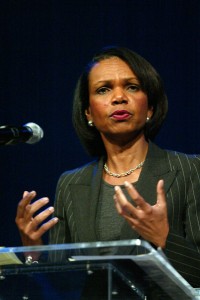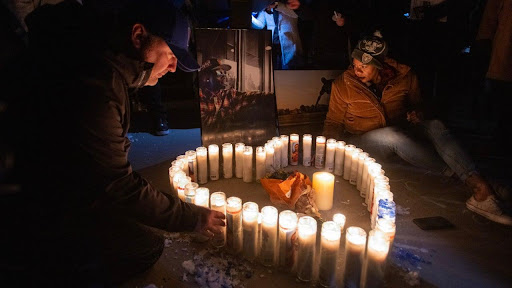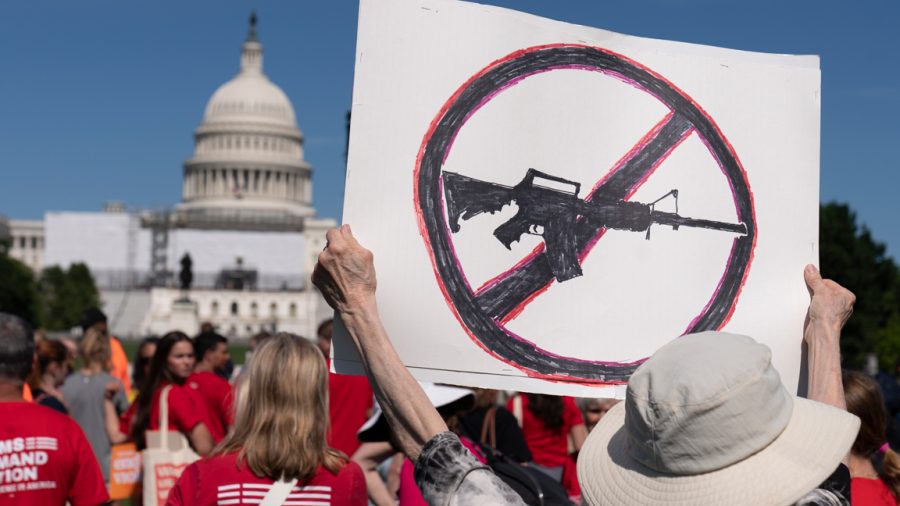
What does 27 million people mean?
Is it the population of Saudi Arabia? Is it the dollar equivalent of the gross domestic product of a Pacific island nation? Yes, but, it is also the number of people held in slavery worldwide, according to a recent National Geographic estimate.
If accurate, this figure would mean there are more slaves today than there were at the height of the Atlantic slave trade in the 18th century.
To address this troubling issue, the Bay Area Anti-Trafficking Coalition, along with the San Jose Police Department, hosted Freedom Summit 2011 in Fremont, which took place on Jan. 21 and 22. The summit featured a keynote speech from former Secretary of State Condoleezza Rice and hosted human rights organizations from all over the world.
According to organizers, the two-day event was the largest of its kind ever on the West Coast.
Although slavery takes many forms in the modern age, the result on the human condition is the same. Human beings are turned into a commodity that holds no more intrinsic value than the money they are able to produce.
It is hard to believe that in these times of global community in which international organizations are charged with policing the world that such a crime is allowed to exist and even flourish.
This is not to say that slavery does not exist within the borders of the United States where captive people are held hidden across its cities and neighborhoods.
Coming just one day before the Freedom Summit’s opening night, law enforcement agencies around Alameda, Contra Costa and Santa Clara counties along with federal authorities conducted an organized bust of brothels in seven Bay Area cities. The brothels are believed to be linked to a prostitution ring that is cycling through dozens of women brought to the U.S. against their will from Asia.
The raid capped off months of investigations that began after one of the brothels was discovered in Hayward during a routine police patrol.
This provides further proof that the topics discussed at the Freedom Summit have serious consequences on our otherwise insulated and protected lives.
“We are not touching on issues that are too far off,” said Betty Ann Boeving, who served as the Summit’s Conference Chair. “We are just learning to crawl together and learning to walk together.”
Boeving, who is also an announcer for the Stanford women’s basketball team, introduced former Secretary of State Rice, who is currently an economics professor at the Stanford Graduate School of Business.
“This is truly a scourge,” said Rice, after taking the podium. “Let’s call it what it is, modern slavery.”
Rice went on to remind the audience that George W. Bush had specifically mentioned human trafficking in his address to the United Nations in September 2003—the same address in which he outlined the threat posed by Iraq’s alleged weapons of mass destruction. Although her rhetoric may be seen as part of an ongoing effort to protect the legacy of the Bush Administration, Bush was indeed the first U.S. president to speak out about this issue on such a visibly public stage.
The former Secretary of State showed her true prowess of statecraft in addressing the packed main sanctuary at Fremont’s Harbor Light Church as she interwove her own life experiences growing up in segregated Birmingham, Alabama.
“Little by little, by naming and, indeed, shaming,” said Rice, “we begin to address that this is an issue that the United States will not tolerate.”
Alameda County Deputy District Attorney Sharmin Bock, whose organization Human Exploitation and Trafficking Watch (HEAT) helped organize the recent Bay Area-wide brothel sting, represents the new era of intolerance towards human trafficking.
Addressing the crowd at the Freedom Summit, Bock stated, “the exploitation of our children, human trafficking is a common problem,” a problem of which, “many of us have our eyes open but we don’t see what’s going on.”
Bock went on to describe how the internet allows human traffickers greater ability to target children and transport them across state and international boundaries. She claimed that within the islands of Hawaii, exploited children can be found from as far away as Japan and the Bay Area.
There were many groups in attendance, representing everything from free trade, to human trafficking in California, to local law enforcement.
Amy Nyquist, Director of Operations for Call + Response, a new “rockumentary” produced out of Emeryville, was interested in the clothes people were wearing. Fashion sensibilities aside, Nyquist believes that the film will showcase how unfair labor practices such as the sweatshops used by clothing companies link American consumers with slavery around the world. According to Nyquist, awareness is the only weapon which can combat this modern epidemic.
“When people realize that there are more slaves than ever before—27 million,” said Nyquist, “we believe they will demand change.”
Representing the San Jose Police Department, Officer Jennifer Dotzler was optimistic that the recent police raids across the Bay Area would have a positive impact. However, she believes that not enough people are aware of what may be going on next door.
“Does it exist? Absolutely,” said Dotzler. “Is it being recognized? No.”
Dotzler stated that the majority of cases involving human trafficking that she had come across involved domestic servants being forced to work in private households.
The most shocking captive narrative came from Arthur Than, whose organization, California Against Slavery, represents a mother whose daughter was recently kidnapped in Sacramento and brought to a Fremont motel where she was forced into prostitution, until federal agents could rescue her. Than attests that this is just one local example of the many young “runaways lured into a life of sex trafficking.”
The message that resonated throughout the event was the need for everyday people to be on the lookout for exploited people in their own neighborhoods. It is up to us to make sure that those who suffer in silence are not forgotten and do not disappear within plain sight.








